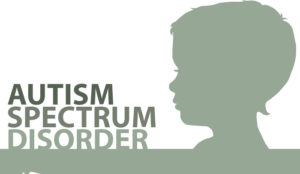Autism Spectrum Disorder (ASD) belongs to a group of complex neurodevelopment disorders characterized by a few repetitive behaviors. Children suffering from this disorder have problems with social communication and interaction.
The phrase ‘spectrum’ refers to various signs, expertise, and disability in functioning that can happen to people with ASD. Some people with ASD can do all types of daily activities while others need support to perform normal activities.
Facts about Autism Spectrum Disorder

Here are the 22 facts of autism spectrum disorder you may not be aware of.
- Boys are 4 times more likely to suffer from autism spectrum disorder than girls
- Autism Spectrum Disorder is not completely curable
- All socioeconomic, racial, and ethnic groups can get affected by this disorder
- Around 46% of the children with autism spectrum disorder have an average intellectual ability
- If the first child of parents has autism spectrum disorder, then the second child has a 2% – 18% chance of developing this disorder.
- Around 1 in 68 children has autism spectrum disorder
- There is no scientifically proven link between autism and vaccines
- Autism disorder does not go away after you become an adult
- Around 25% of people with autism are nonverbal
- 90% of adults having autism are either underemployed or unemployed
- Although there is no treatment for ASD, there are many interventions that may help kids learn several skills to lead a better life
- In case of identical twins, if one child has autism spectrum disorder, then the other will also be affected by 36% to 95%. For non-identical twins, if one child suffers from this disorder, then the other has a 0% to 31% chance to have it.
- Autism treatment costs $236-262 billion annually in the US
- Some therapies that are used to help individuals with autism disorder are Visual Schedules, Cognitive-Behavioral Therapy, Theatre therapy, Sensory Integration therapy, Music therapy, Pivotal Response Treatment, Applied Behavioral Analysis, Early Start Denver Model, Social Story Therapy, etc.
- People having autism disorder are often bullied. Almost 2/3rd of people are bullied.
- People having autism disorder can love, feel and empathize with other people. There are many websites that have been created especially for these people. They can make friends and interact with people online.
- Earlier diagnosis and treatment help individuals with ASD to get the required services quickly.
- The actual cause of autism is not yet known. Studies say that there are many contributing factors like the environment, genes, and early brain development.
- Studies say that a trained dog can be a good companion for the autistic child. It can provide safety to the child. It can help to reduce the aggressive behavior of the child, and calm him or her. Most importantly, the child can learn to interact with the community freely.
- Children with ASD can participate in the classroom. They can learn like other normal children with the guidance of their teachers, doctors, families, communities, providers, specialists, etc. They just need extra love, care, and attention. They can survive.
- Divorce rates are higher amongst couples having an autistic child. Studies suggest that couples can use a few tips to save their marriage – they can reduce stress by providing an appropriate health care, spending more time with the spouse, being a support system for each other and the child.
- There are many ways to know if infants and children have autism, as early as 6 months. If a baby doesn’t interact with people or doesn’t respond to them, then it may be a sign of autism. If babies older than 6 months don’t give any response when you call their name or avoid eye contact, then it is also a sign of autism. Repetitive movements or lack of joint movements are also an indicator of autism. Bigger head size may also be a sign of an autistic disorder.
Conclusion
It’s important to spread awareness about autism since autistic children need special care and attention. Moreover, early intervention can help these children to prosper and deal with this disorder prudentl.
 Here are the 22 facts of autism spectrum disorder you may not be aware of.
Here are the 22 facts of autism spectrum disorder you may not be aware of.